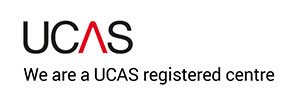
UKVI 6months Study Visa (Under 18 years old)
SHORT TERM STUDY VISA FOR UNDER 18 REQUIREMENTS
Requirements – Under 18 years old – Child
If you are under 18 you will have to meet all the requirements for a ‘short-term student (child)’:
- You are under the age of 18
- You already have an unconditional offer of a course in the UK
- You intend to study at an education provider which:
holds a Tier 4 sponsor license, or - is accredited by a Home Office approved accreditation body, or
- You intend to study at an education provider which:
- is inspected, reviewed or audited by a Home Office approved inspection body, or
- is an overseas higher education institution offering only part of their programmes in the UK
- It cannot be a state-maintained school or institution (a state-maintained school or institution is defined as ‘one which provides a free education and is primarily funded from’ the public purse)
- You do not intend to study in the UK for extended periods through frequent or successive periods as a short-term student.
- You intend to leave the UK at the end of 6 months.
- You have enough money to support yourself while you are in the UK. You need to show you can pay for your tuition fees, accommodation and living expenses.
- There are suitable arrangements for your travel to, reception and care in the UK. You have a parent or guardian in your home country who is responsible for your care, and who confirms that they consent to the arrangements. See the Home Office information for an explanation of the evidence you will be expected to show about this. You can also read much more detailed information in the modernised guidance that the Home Office provides to its staff on the short-term student (child) route (see pages 16-20 of the guidance).
- The course does not have to lead to a specific qualification.
- There are no minimum academic requirements for immigration purposes. The course can be at any level, but your course provider may have specific admissions criteria.
- You are not required to have a minimum English language ability, but your course provider may have specific admissions criteria.
- There are no minimum hours which you must be studying during your time in the UK. You can study part-time or full-time as a short-term student (child).
- You will not be allowed to do any kind of work, work experience or work placement (even if it is part of your course, or is unpaid). You will not be allowed to do any business or professional activities in the UK.
ENTRY CLEARANCE
If you are a visa national, you must apply for entry clearance before you travel to the UK (see the Immigration Rules, Appendix 2 of Appendix V for a current list of visa nationals). As part of your entry clearance application you will have to explain whether you will make your journey to the UK on your own (‘unaccompanied’), or whether you will be travelling with an adult (‘accompanied’). If you say you will be travelling with an adult, their name will be shown on the entry clearance and you will be refused entry to the UK if you arrive in the UK without them. You can name two adults as long as you travel with at least one of them. It is a good idea to carry with you all of the documents that you submitted with your entry clearance application, when you travel to the UK. The Border Force Officer may ask to see these documents when you arrive in the UK.
If you are a non-visa national, you can choose whether to apply for entry clearance in advance of travelling, or to wait until you arrive at the port of entry to the UK, and make your request to enter as a short-term student (child) there. If you do not obtain entry clearance before you travel, you will need to produce all the documents to support your application to enter the UK as a short-term student (child) to the Border Force Officer when you arrive at the port of entry to the UK. This includes evidence of your unconditional offer to study in the UK and evidence of your finances. It is important you ask to be admitted as a short-term student (child), rather than as a visitor – you will need to make a special effort to talk to the Border Force Officer to explain that. Make sure that they look at your short-term student (child) visa letter (which confirms your unconditional offer and acceptance on the course), and ask that the stamp you get in your passport indicates you are here as a short-term student (child).
Even if you obtain entry clearance as a short-term student (child) before travelling to the UK, you should still carry all the documents that you submitted with your entry clearance application when you travel to the UK. The Border Force Officer may ask to see these documents when you arrive in the UK.
APPLICATION
Your application must include:
- The completed application form. In every country apart from North Korea, you have to fill this in online. You will be asked your ‘reason for visit’. Choose:
- Reason for visit? – select ‘study’
- Visa type? – select ‘study (non Points-Based System)’
- Visa sub type? – select ‘study – short-term student 6 months’ if you want to come for a maximum of 6 months, or ‘study – short-term study 11 months – English language’ if you want to come for an English language course of between 6 and 11 months, or ‘study – short-term student child 6 months’ if you are under 18
- The current application fee in local currency (£89 for short-term student visas up to 6 months, £170 for short-term student visas up to 11 months)
- Your current travel document
- One passport sized colour photograph
- Evidence of your unconditional offer of study or research in the UK. This is normally a letter from the institution that you intend to study at, on official headed paper, stating the title, duration and cost of the study. If you want to do research or research tuition, you will have to provide evidence that you meet all the requirements.
- Evidence that you have enough money to support yourself while you are in the UK. You need to show you can pay for your tuition fees, accommodation and living expenses. There are no specific requirements which state the amount of money you must show when you apply for a short-term student visa. However you must show that you have enough money to support yourself without recourse to public fundsand without working. It is advisable to provide evidence that you have enough money to cover your course fees plus accommodation and living expenses. Using the Tier 4 maintenance figures as a guide only, it would be reasonable to show that you have the equivalent of £1,015 per month, or £1,265 per month if studying in London, for the duration of your studies. If you will be staying with friends or family while in the UK, which will decrease your living costs, you can include evidence of this
- All other supporting documents listed in the Home Office’s website information for short- term students
- You must submit the original documents along with a photocopy of each. You will also need to provide a translation of any documents which are not already in English. Please read the Home Office’sinformation on supporting documents for further details.
- You must submit your completed immigration application to your nearest UK visa application centre. You do not need to apply in the country where you live.
MEDICAL INSURANCE
Short-term students
If you are in the UK as a short-term student, or under the previous scheme of student visitor, for any periods when you are not a full-time student you should take out private medical insurance (unless you have paid the immigration health surcharge).
Reciprocal Health Care Agreements
The UK has reciprocal health care agreements for the following people:
Citizens of: Armenia; Azerbaijan; Belarus; Georgia; Kazakhstan; Kyrgyzstan; Moldova; New Zealand; Russia; Tajikistan; Turkmenistan; Ukraine; and Uzbekistan
Residents of: Anguilla; Australia; Barbados; British Virgin Islands; Falkland Islands; Gibraltar (but only if expected to stay in UK for a maximum of 30 days); Isle of Man (provided stay will not exceed 3 months); Jersey (provided stay will not exceed 3 months); Montserrat; St Helena (not Ascension Island or Tristan da Cunha); and Turks and Caicos Islands
Insured persons of: Bosnia and Herzegovina; Kosovo; Macedonia; Montenegro; Serbia
Please note that this list changes, as new arrangements are agreed, or existing agreements end.
If you are covered by a reciprocal health care agreement, you will be eligible for some free NHS hospital treatment. Reciprocal health care agreements generally cover free hospital treatment, the need for which arose during your stay, but in many cases do not cover treatment of an existing condition. Before you travel, you should seek advice from the health authorities in your home country about what treatment will be covered. You may still need to take out limited medical insurance.
EEA NATIONALS
If you fall into any of the following groups you should obtain a European Health Insurance Card (EHIC) before coming to the UK, to show you are eligible for free hospital treatment:
‘insured’ EEA nationals, stateless persons or refugees, their family members and the survivors (irrespective of nationality) of these groups of people, insured in each case in an EEA member state
‘insured’ Swiss or European Union (EU) nationals, stateless persons or refugees, their family members and the survivors (irrespective of nationality) of these groups of people, insured in each case in Switzerland non-EEA nationals legally resident and ‘insured’ in any EU country except Denmark
‘Insured’ in this context means that you qualify for state-funded healthcare in the EEA or Swiss state where you live.
Visit the European Commission’s website for more information on the EHIC at http://ec.europa.eu/youreurope/citizens/education/university/health/index_en.htm
Even if you are entitled to free NHS treatment whilst in the UK, you should consider taking out insurance which covers other medical-related costs. An insurance policy may cover, for example:
- lost fees if you are unable to complete your course;
- costs of returning home if a relative is ill;
- costs of a relative visiting you in the UK if you fall ill;
- cost of returning to your home country for treatment;
- or in the worst possible situation, returning a body home for burial.
There is often a long wait for NHS treatment, sometimes many months. An insurance policy which gives you access to private medical care could give you much quicker access to the treatment you need.
If you already have medical insurance in your home country, check whether you can extend it to cover your stay in the UK, as well as looking at options available from UK insurers.
There are obviously lots of different insurance companies offering policies, but relatively few have ones specifically designed for international students. One of the longest established, for instance, is Endsleigh Insurance, which has produced a special health insurance policy for international students and their spouses or civil partners and children in the UK. Details of the policy can be found on the Endsleigh website. Please contact Endsleigh for further details.







